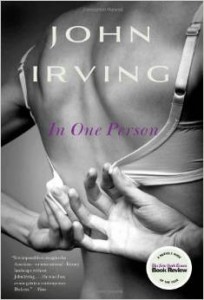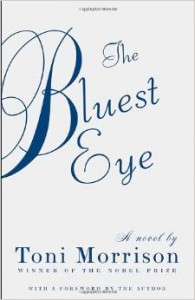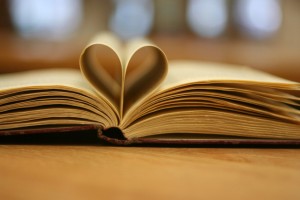Over the past few weeks, several stories have hit the news that the average, mainstream/majority person has often struggled to fully understand and to discuss with sensitivity. Topics range from the mishandled coverage of Caitlyn Jenner’s eloquent coming out in Vogue, to bungled discussions of Rachel Dolezal’s behavior that horrifically convolve (among other things) acts of racism, white privilege, and injection of a not officially defined trans-racial mental illness. Over and over in the social media discussions on these topics I’ve seen a consistent plea, “Go find someone in these communities and talk to them.” Yes, do this. But also, remember (especially relevant for introverts) the words of 18th century humorist Sydney Smith, “What you don’t know would make a great book.” In fact, it wouldn’t just make a great book, it might actually already be a great book.
Let me state this clearly, you should know people who aren’t like you and listen to them to learn of other sub/cultures. Beyond that, read.
[N.B. In this post, I’m only including quotes from and recommendations for books that I have personally read. I am one person – and I’m an astronomer – so there may be better books or quotes than those I’m using. Please, add them in the comments below.]
In Discourse on Method and Related Writings, Rene Descartes writes, “Reading of all good books is indeed like a conversation with the noblest men.” I can never speak to Maya Angelou, but her autobiographies lets me sit at her nobel feet and listen. When talking of science fiction, we often say books can take us to other worlds, but in our real world, words can also take us into other lifestyles and other cultures. It is very easy to restrict our experiences to what is comfortable; to restrict what we read to what is easy and unchallenging. But the world isn’t an easy and unchallenging place to exist, and it is in the hard to read books that we often find uncomfortable truths that we need to thoughtfully confront if we want to make this world a better one.
Read the hard books. Read the books that take you places you’ve never walked in your own skin. Read the banned books and the dangerous books.
In The Picture of Dorian Gray Oscar Wilde wrote, “The books that the world calls immoral are books that show the world its own shame.” Oscar Wilde spent much of his life hiding his true nature, was imprisoned for homosexuality, and spent his final years in exile from his country of England and (due to family interference) his long-time lover Alfred Douglas. Despite the pain of his life, he somehow wrote beautiful fairy tales and remained eloquent even in his most painful books and letters. In his works, he buried parables of good and evil as he took what steps he could to use words to challenge the world to face its shame and be better. Ironically,The Picture of Dorian Gray
has long been blasted as a dangerous book, and a fully uncensored version only became available in 2011.
It is among the banned books that we can find the truths we need to understand Jenner and the difficulties of race identity surrounding Dolezal’s case.
 One repeat contributor to banned books lists is John Irving. In his latest book, In One Person: A Novel
One repeat contributor to banned books lists is John Irving. In his latest book, In One Person: A Novel, Irving tells the story of a homosexual man and the transgendered individuals he loves. This is a heartbreakingly painful story that hits on the struggles of growing up and growing old as “other”, and the social persecutions that come with it. Yes, it is written by a white guy who has been publicly in relationships with cis-women, but… It is a starting point (not an ending point!) for understanding the lives of transgendered and homosexual people. And it is startlingly beautiful.
I have to admit, the books I’ve read have had far fewer transgender characters then is representative of our world. I’ve had more heartfelt conversations with open-to-me transgender people in real-life (even living in small town, middle-America) than I’ve read in all the too-many books I’ve read when I should have been doing research. In writing this post, I did a quick survey of books with transgender characters (1, 2, 3), and was disturbed to only recognize the title of Almost Perfect (which Audible.com has been recommending to me). I don’t know if books with transgender characters/themes are simply failing to rise above the noise (I tend to pick books from awards lists, book reviews, and “highest rated” searches) or if they are failing to be published.
On her website, author Judy Blume writes, “But it’s not just the books under fire now that worry me. It is the books that will never be written. The books that will never be read. And all due to the fear of censorship.” When a book gets published, publishing houses are taking a financial risk on an author’s success, and censorship can (with some exceptions) do real damage to sales. Blume, like Irving, is no stranger to the banned books lists. Five of her books appear on banned book lists, including my favorite, “Tiger Eyes,” which is banned for its depictions of depression and teenage thoughts of suicide. Blume and Irving, however often they are banned, are also top selling authors with numerous not banned books, and both authors have also had their works transformed into TV and movie productions. It is easy to see why publishing houses will over and over take the “risk” of publishing provocative works by these two white, western, generally mainstream authors whose books consistently sell well.
In asking, “Where are the transgender books?” as I look at award nominated and highly ranked books, part of what I’m asking is, “Where are the publishers who are willing to publish and promote these books? And where are the authors willing to write these books and run the risk of never being published?
Being an author takes bravery and in some cases a willingness to leave everything on the table. Writing is hard, and it isn’t easy to make the sacrifices of time and energy that are needed to even try. But, as Toni Morrison points out (in an often quoted and never fully cited speech), “If there is a book you really want to read but it hasn’t been written yet, then you must write it.”
 Morrison has worked to “write it” with her own writing, which confronts the uncomfortable truths of black America in captivating prose. Her book, The Bluest Eye, is
Morrison has worked to “write it” with her own writing, which confronts the uncomfortable truths of black America in captivating prose. Her book, The Bluest Eye, is relevant reading as we try and discuss the case of Rachel Dolezal. This book follows a young girl, Pecola, as she grows progressively more mentally ill in the face of physical abuse, molestation, racism, and a society that purposely turns a blind eye on her. Throughout the book, Pecola expresses the belief that she would be beautiful if only she could have blue eyes. This fictional account gives us a painful snapshot into that moment in probably many young girls lives where all they want is that culturally “beautiful” thing (blue eyes, blond hair, …) and realize it isn’t theirs. For a POC, this may be made worse by the constant misappropriation of their history, culture, & even fictional characters as whites play dress up with their heritage. (This is addressed phenomenally well in Dear White People).
TV and media have repeatedly shown through their casting of white people to play ethnic characters (and as Dolezal proved through her own actions) that even the palest of Caucasians can be made to appear “ethnic” and to pass as a POC through makeup. The converse isn’t true. I can never fully understand the pain of having my culture misappropriated and then portrayed on the big screen by highly paid cultural thieves. Nevertheless, because of the books I read and the company I try to keep, I can see the problem, and see why it is a problem. I still don’t know the right words to describe the wrongness of Dolezal’s actions, but because of my reading I know I’m not the right person to decide what the right words are.
Journalist Edward P Morgan said (in a quote I have on a magnet and can’t better cite), that “a book is the only place in which you can examine a fragile thought without breaking it.” You aren’t going to “step in it” by engaging with a book. You aren’t going to forget to check your privilege and hurt someone just by turning a page. Through reading, you can start to gain the understanding needed to appropriately engage in these fragile thoughts in social dialogue.
Read about those things you don’t know how to ask about. Read about those things where you don’t even know how to ask about.
Smith’s advice that “What you don’t know would make a great book,” is only useful if you read the books on things you don’t know, on things that are unfamiliar, and on the fragile ideas that are sometimes so hard to handle in real life.
In the January 1994 issue of Reader’s Digest (probably still in your doctor’s office), Ray Bradbury stated, “You don’t have to burn books to destroy a culture. Just get people to stop reading them.” The power of the digital era is that we have instant access to vast libraries, book stores, and so much more. It has never been easier to access books from global authors and from every walk of life. It has also never been easier to shelter ourselves in bubbles of sameness, consuming only content that fits our personal belief systems and reflects our lives and wishes.
Don’t do what is easy. Do what is hard and seek the great books containing the (so often banned) of hard truths.
Read.
image credits: header: adapted from Thierry Vialard | Dreamstime.com; right: Kate Ter Haar. Book covers taken from Amazon.com.
Aside: I’ve been asked a few times “What books should a truly educated person read.” Anytime a scientist answers that question, they are going to answer it from a limited perspective. I have a PhD in astronomy, and I’m really well educated in science, but I haven’t put in Anders Ericsson’s (admittedly debunked) 10,000 hours to become an expert in the world’s literature and non-fiction and because I’m a scientist, I haven’t really even had the time I my like to become a full well rounded person. (Scientists are ellipses?) With all those caveat’s in mind, here is my starting point on authors that I have valued in striving to be as well educated as possible as well as the book lists I use as I keep learning (note: I’ve hated some of these).
- If they have a Nobel Prize in Literature, read them. (I’ve made small progress, but had no regrets. I found Morrison this way.)
- The AP English reading list (Yes, I took AP English, and yes, I’ve read most of these)
- With much overlap with the above, The OEDb list of 50 books that changed the world (60-70% done, wish I could remove Machiavelli’s influence on the world and restore de Tocqueville’s ideals of democracy to America)
- Karen Anderson
, specifically A History of God: The 4,000-Year Quest of Judaism, Christianity and Islam
- Maya Angelou
, specifically I Know Why the Caged Bird Sings
- Ray Bradbury
, specifically Fahrenheit 451: A Novel
- Maxine Hong Kingston
- CS Lewis
, specifically Till We Have Faces: A Myth Retold
- John Irving
(a fav author)
- Toni Morrison
(a fav author)
- Salman Rushdie
, specifically Midnight’s Children: A Novel (Modern Library 100 Best Novels)
and Shalimar the Clown: A Novel
- Amy Tan
- Alice Walker
- Oscar Wilde
Other favorite authors and one off books of still to be determined “world changing & insight giving” value. This list is *not complete* and I’m sure I’m missing people, likely including friends.
- Paolo Bacigalupi
- Phillip K Dick
- Cory Doctorow, especially the short Print Crime
- Extremely Loud and Incredibly Close by Jonathan Foer
*
- Neil Gaimen
- Robert Heinlein
- The Kite Runner by Khaled Hosseini
*
- Sue Monk Kidd
- Steven King
- The Drowning Girl
* by Caitlin Kiernan
- Mur lafferty
- Steig Larrson’s “The Girl Who…”; series
- Christopher Moore
- John Scalzi
- Scott Sigler
- Kim Stanley Robinson
- Neal Stephenson
If you follow me on Goodreads, you’ll see that I read a lot of other stuff, including a lot of YA. Sometimes I read to escape, and I just want some dystopia fun.
*This book will wreck you. Read YA that is all goodness and light after.




I consider myself to be fairly well read but have to admit to not having read many of your authors on your first list, but most of them on the second. I wonder what that says about me?! 🙂
I tend to read nonfiction, but one book that changed me was The End of Poverty by Sachs.
I had a professor in college who said that linguistic prejudice is the last remaining socially acceptable prejudice in our society. We constantly make all sorts of assumptions about a person’s education, background, race, even intelligence based on the way he or she talks; after all, if somewhere were really a smart, educated individual, he or she would speak Correct English.
Which is why I recommend “Word on the Street: Debunking the Myth of ‘Pure’ Standard English” by John McWhorter. It’s a very easy-to-read discussion of what exactly language and dialect really are, why no dialect is intrinsically “better” than any other, and why even the idea that there ever was a “real” English is actually a myth.
I’d also recommend quite a number of McWhorter’s other books–every one I’ve read has been not only informative but entertaining–but this is probably the most useful one in changing people’s daily perceptions.
Your comment about Machiavelli makes me a little sad. I’m sure you’re referring to common reading of The Prince as a how-to guide for tyrants, but in truth Machiavelli himself is better understood by looking at his Discourses on Livy, which was meant to be a companion to The Prince. In the Discourses we see Machiavelli’s true vision: a strong executive who could unite Italy into a functional state and then establish a republic. Machiavelli was a firm believer in republican government and because as he put it “…the governments of the people are better than those of princes” Book I, Chapter LVIII Discourses on Livy.